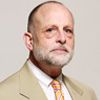A federal judge has dismissed the last remaining claim in a libel and defamation lawsuit filed against The Seattle Times by Dr. Johnny B. Delashaw Jr., the former head of the Swedish Neuroscience Institute who was a central figure in an investigative series that found aggressive business practices and a toxic work environment at the clinic were jeopardizing patient care.
An entry late Wednesday in the lawsuit’s docket by U.S. District Judge James Robart stated he was granting the news outlet’s motion for summary judgment on the final claims Delashaw had alleged against The Seattle Times for the 2017 “Quantity of Care” series. The articles placed Delashaw at the center of turmoil in the institute, located on Swedish’s Cherry Hill campus.
Delashaw sued The Seattle Times in April 2018, about 10 months after the series and various follow-up articles ran, including stories that detailed Delashaw’s disruptive management style and discipline imposed on his license by state regulators. The actual order outlining the judge’s reasons for dismissing the claim against The Times remains under provisional seal for up to 14 days while the parties work out redactions of some confidential information contained in the pleadings.
However, Robart granted a motion filed in July by attorneys for The Seattle Times that argued the final issue in question — whether the Times accurately reported on financial incentives contained in Swedish physician contracts — should be dismissed.
Delashaw was unable to show “that the description of the incentive contracts caused him damage, that the remaining statements are not substantially true, and that the Times acted with fault,” argued attorney Jessica Goldman of the Summit Law Group, which represented The Seattle Times, in the successful motion.
“We are extremely pleased that Judge Robart has concluded what we believed all along — that our reporting on Dr. Delashaw and Swedish Neuroscience Institute was accurate, thorough and fair,” said Seattle Times Executive Editor Michele Matassa Flores, in a prepared statement Thursday.
“Readers told us the Quantity of Care series truly saved lives and made the institution and medical field better. We stand proudly by the work of reporters Mike Baker and Justin Mayo and the team of people who helped produce this meaningful series,” Matassa Flores said.
Baker, now a reporter at The New York Times, and Mayo, who has also since left The Seattle Times, were not individually named in the lawsuit.
Goldman called The Seattle Times “a critical source of news and information for our community about the things that matter most. The reporting that was challenged in this lawsuit was of the highest caliber, reflecting the substantial resources and care the newspaper devotes to in-depth investigative reporting. Judge Robart’s ruling confirmed as much.”
Delashaw’s attorneys, at the Seattle firm Harrigan Leyh Farmer & Thomsen, responded to an email seeking comment for this article and asking whether an appeal was under consideration by forwarding it to Goldman with a note “advising your clients’ reporters not to attempt to contact our firm or Dr. Delashaw.”
Delashaw still has a defamation claim pending against Dr. Charles Cobbs, another Swedish physician. Delashaw accused Cobbs of making false statements and engaging in a conspiracy, rooted in false allegations, to undermine Delashaw because Cobbs resented loss of income and authority when Delashaw was recruited and eventually became director of the neuroscience center in 2015.
Robart, in a 78-page order issued in July, dismissed all but one of Delashaw’s claims against the news organization, including allegations that the articles defamed and injured Delashaw by implying he was a bully of an administrator who performed unnecessary surgeries and placed profits before patient safety and care. Delashaw also accused the newspaper of cherry-picking data that supported its stories and ignoring information that didn’t.
Delashaw had particularly protested that the Times’ articles implied that his actions at the clinic, both inside and outside the operating theater, put patients at risk. Indeed, the Times’ pleadings acknowledged the “gist” of the articles was that “SNI faced substantial challenges under the disruptive and abusive leadership of Dr. Delashaw which caused many surgeons, nurses and administrators to quit, incentivized astronomically high production among surgeons and … put patients at risk.”
Robart dismissed all of those claims.
“The fatal flaw with Dr. Delashaw’s argument is that he fails to argue that any of the statements the Times wrote are false,” the judge wrote.
Delashaw resigned his Swedish post in March 2017, less than three weeks after the series exposed concerns about his practices and leadership skills. The state suspended his license in May 2017.
The Medical Quality Assurance Commission wrote that the suspension of Delashaw’s license was warranted because of “an immediate threat to the public health and safety.”
In documents filed to support the suspension, commission officials said Delashaw had intimidated subordinates by yelling, swearing and making threatening movements toward staff members. That had a chilling effect on staff members, according to the commission, and some became afraid to ask Delashaw questions that were needed to properly care for patients.
“This reluctance of staff to engage (Delashaw) imparted an enormous amount of risk onto the patients,” wrote Melanie de Leon, executive director of the commission.
In a subsequent investigation, hospital regulators identified a wide range of troubles at Swedish Health’s Cherry Hill facility, including failures of oversight and “numerous” issues related to patient safety.
Delashaw’s license was reinstated with provisions in July 2018.
